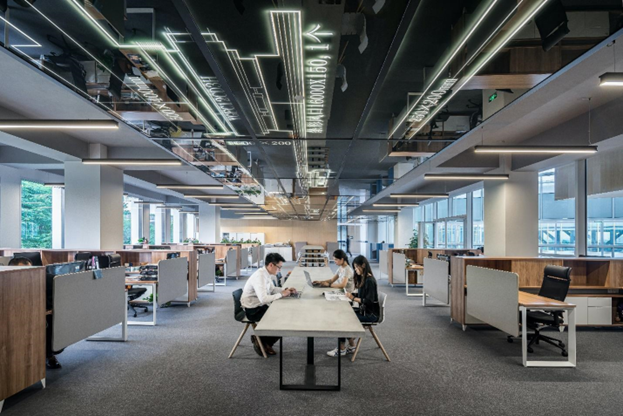Maintaining office spaces is not just about aesthetic appeal; it’s a crucial aspect of property ownership that directly impacts the bottom line. From financial implications to legal obligations and tenant satisfaction, the consequences of neglecting maintenance can be far-reaching for building owners. In this article, we’ll delve into the multifaceted impacts of improperly maintained office spaces and why proactive maintenance is essential for long-term success.
Financial Implications
One of the most tangible impacts of neglected maintenance is the financial strain it puts on building owners. Increased repair and maintenance costs are inevitable when minor issues are left unaddressed, leading to more significant problems down the line. Moreover, poorly maintained office spaces tend to depreciate in value over time, making it challenging to recoup investments or attract potential buyers or tenants. Additionally, building owners face legal liabilities and potential lawsuits if negligence results in accidents or injuries on the premises, highlighting the importance of prioritizing maintenance to mitigate such risks.
Legal Impact
Building owners have a legal obligation to ensure the safety and habitability of their properties for tenants and visitors. Neglecting maintenance obligations not only violates these legal responsibilities but also exposes owners to potential lawsuits and financial penalties. Liability for injuries or damages resulting from negligence can lead to costly legal battles with a workers’ compensation lawyer and tarnish the reputation of the property and its management. Compliance with building codes and regulations is non-negotiable, making it imperative for owners to stay informed and proactive in addressing maintenance issues promptly.
Health and Safety Concerns
Maintaining a safe and healthy work environment is paramount for the well-being of occupants. Neglected maintenance can pose significant risks, including accidents, injuries, and health hazards such as mold infestations or poor indoor air quality. Failure to address these concerns not only jeopardizes the health and safety of occupants but also exposes building owners to potential legal liabilities and regulatory fines. Compliance with health and safety regulations is not only a legal requirement but also a moral obligation that owners must uphold to protect the welfare of their tenants and employees.
Tenant Retention and Attraction
Satisfied tenants are the lifeblood of any commercial property investment. However, improperly maintained office spaces can lead to tenant dissatisfaction and high turnover rates. The negative impact on current tenants’ satisfaction can result in difficulties attracting new tenants or renewing leases. Prospective tenants are more discerning than ever, prioritizing well-maintained properties with a reputation for quality management. Therefore, investing in regular maintenance not only preserves tenant satisfaction but also enhances the property’s marketability and long-term profitability.
Reputation Management
The perception of building management and ownership directly influences tenant retention, investor confidence, and overall brand reputation. A poorly maintained property reflects negatively on the owner’s commitment to quality and professionalism. Conversely, well-maintained properties convey trustworthiness and reliability, attracting reputable tenants and investors seeking long-term partnerships. Building owners must recognize the symbiotic relationship between property maintenance and brand reputation, prioritizing proactive maintenance as an integral component of effective property management.
Employee Productivity and Morale
Office environments play a significant role in shaping employee satisfaction, productivity, and morale. Neglected maintenance can create discomfort, distractions, and safety concerns that hinder employee performance and engagement. Moreover, the negative impact on employee morale can lead to higher turnover rates and increased recruitment costs. Building owners must prioritize maintenance to create conducive work environments that foster employee well-being, productivity, and retention. Investing in the upkeep of office spaces not only enhances the overall workplace experience but also contributes to a positive corporate culture and competitive advantage.
Sustainability and Environmental Considerations
In an era of increasing environmental awareness, sustainability has become a crucial consideration for building owners. Improperly maintained office spaces contribute to energy inefficiency, carbon emissions, and environmental degradation. Adopting sustainable practices such as energy-efficient upgrades, waste reduction initiatives, and green building certifications not only reduces operating costs but also enhances the property’s marketability and long-term value. Building owners have a responsibility to minimize their environmental footprint and contribute to a more sustainable future through proactive maintenance and sustainable management practices.
Insurance Implications
Insurance coverage is essential for protecting building owners against unforeseen risks and liabilities. However, improperly maintained properties may face challenges in securing adequate insurance coverage or may incur higher premiums due to increased risk exposure. Furthermore, insurance claims may be denied if negligence is deemed the cause of damages or accidents, potentially leading to disputes that may necessitate the involvement of a workers’ compensation lawyer to protect the owner’s interests. Building owners must ensure that their properties are well-maintained and compliant with safety regulations to mitigate insurance-related risks and safeguard their financial interests.
Long-Term Financial Planning
Effective financial planning requires building owners to anticipate and budget for maintenance costs as part of their operational expenses. Proactive maintenance not only reduces the likelihood of costly repairs but also prolongs the lifespan of building systems and components, resulting in long-term cost savings. Prioritizing preventive maintenance initiatives allows owners to allocate resources efficiently, minimize downtime, and maximize the return on their investment. By incorporating maintenance considerations into their long-term financial strategy, building owners can ensure the sustainability and profitability of their properties for years to come.
Conclusion
The impacts of improperly maintained office spaces on building owners are diverse and far-reaching, affecting financial stability, legal compliance, tenant satisfaction, and brand reputation. Proactive maintenance is not only a sound business strategy but also a moral imperative for protecting the well-being of occupants and preserving the value of commercial properties. Building owners must prioritize maintenance as an integral aspect of property management, investing in regular upkeep, and sustainable practices to ensure the long-term success and viability of their investments. By understanding the multifaceted impacts of neglecting maintenance and adopting a proactive approach to property management, owners can mitigate risks, enhance tenant satisfaction, and maximize the value of their assets in an increasingly competitive market.
Pat Baker is an office worker, who has dealt with frustrating maintenance concerns, and writes for workers’ compensation lawyers in New Jersey.


